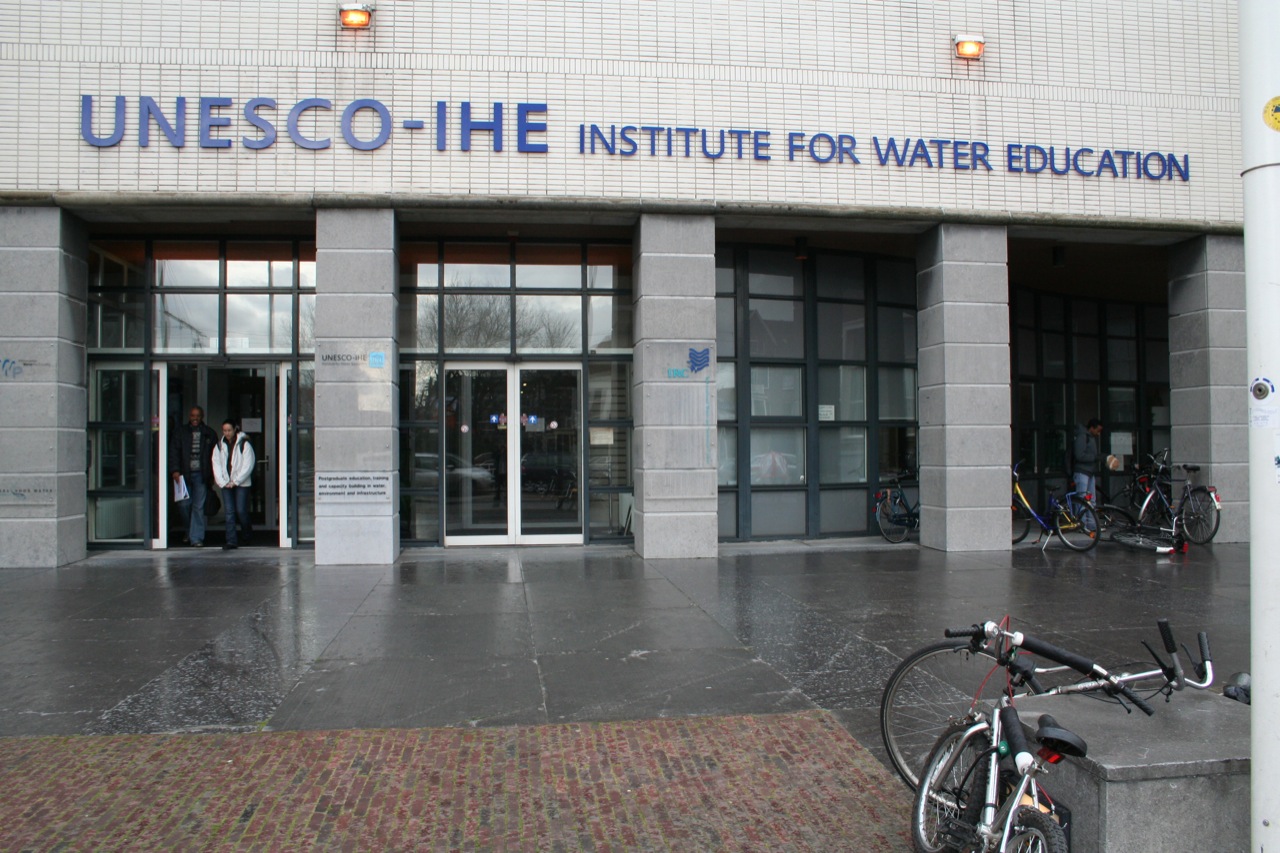UNESCO-IHE
| UNESCO-IHE | |
| | |
| Location: | The Netherlands |
| Type: | Knowledge institute |
| Class: | University |
| Key work: | Education, Information exchange and knowledge transfer |
| Website: www.unesco-ihe.org | |
The UNESCO-IHE Institute for Water Education is an international institute for water education that was established in 2003. It is based in Delft, the Netherlands and is owned by all UNESCO member states. It is established as a UNESCO ‘Category I institute’ jointly by UNESCO and the Government of the Netherlands.
The Institute operates entirely on extra budgetary funds and as such represents a new and unique model within UNESCO that implicitly requires an innovative and entrepreneurial approach to ensuring its funding. The Institute is the largest water education facility in the world and the only institution in the UN system authorized to confer accredited MSc degrees.
UNESCO-IHE is instrumental to the strengthening of efforts by other universities and research centres in increasing knowledge and skills of professionals working in the water sector. The Member States of UNESCO will have access to the knowledge and services of UNESCO-IHE in human and institutional capacity-building, which is vital to their efforts in the achievement of Millennium Development Goals, the Johannesburg Plan of Implementation (Agenda 21) and other global water objectives.
UNESCO-IHE's functions are defined as follows:
- Play a leadership role in international standard setting for postgraduate water education programmes and continuing professional education;
- Provide capacity-building services in particular for developing countries;
- Offer education, training and research programmes
- Set up and manage networks of educational and water sector institutions and organizations worldwide;
- Serve as a ‘policy forum’ for UNESCO Member States and other stakeholders; and
- Provide professional expertise and advice on water education.
Since its inception in 1957, IHE – as it was known – has provided postgraduate education to more than 13,500 professionals (engineers and scientists) almost entirely from developing/transition countries, representing 160 countries. It has also graduated more than 50 PhD candidates and executed numerous research and capacity building projects throughout the world.
UNESCO's work in Water
UNESCO's work in water is built on three pillars. At its heart is the long-standing International Hydrological Programme (IHP), now carried out in collaboration with academic and professional institutions, IHP National Committees, and governments of UNESCO's 190 Member States.
The second pillar is provided by UNESCO-IHE as an integral part of UNESCO, as well as some 10 associated regional and international centres throughout the world.
The third pillar is the World Water Assessment Programme (WWAP), a joint initiative of 24 bodies of the United Nations system. The UN WWAP, hosted by UNESCO, issued the World Water Development Report in 2003, the first global assessment of the world's water resources. A second report was issued in 2006, as part of a tri-annual programme.
Links
Acknowledgements
This material is derived from the UNESCO-IHE article in Wikipedia

